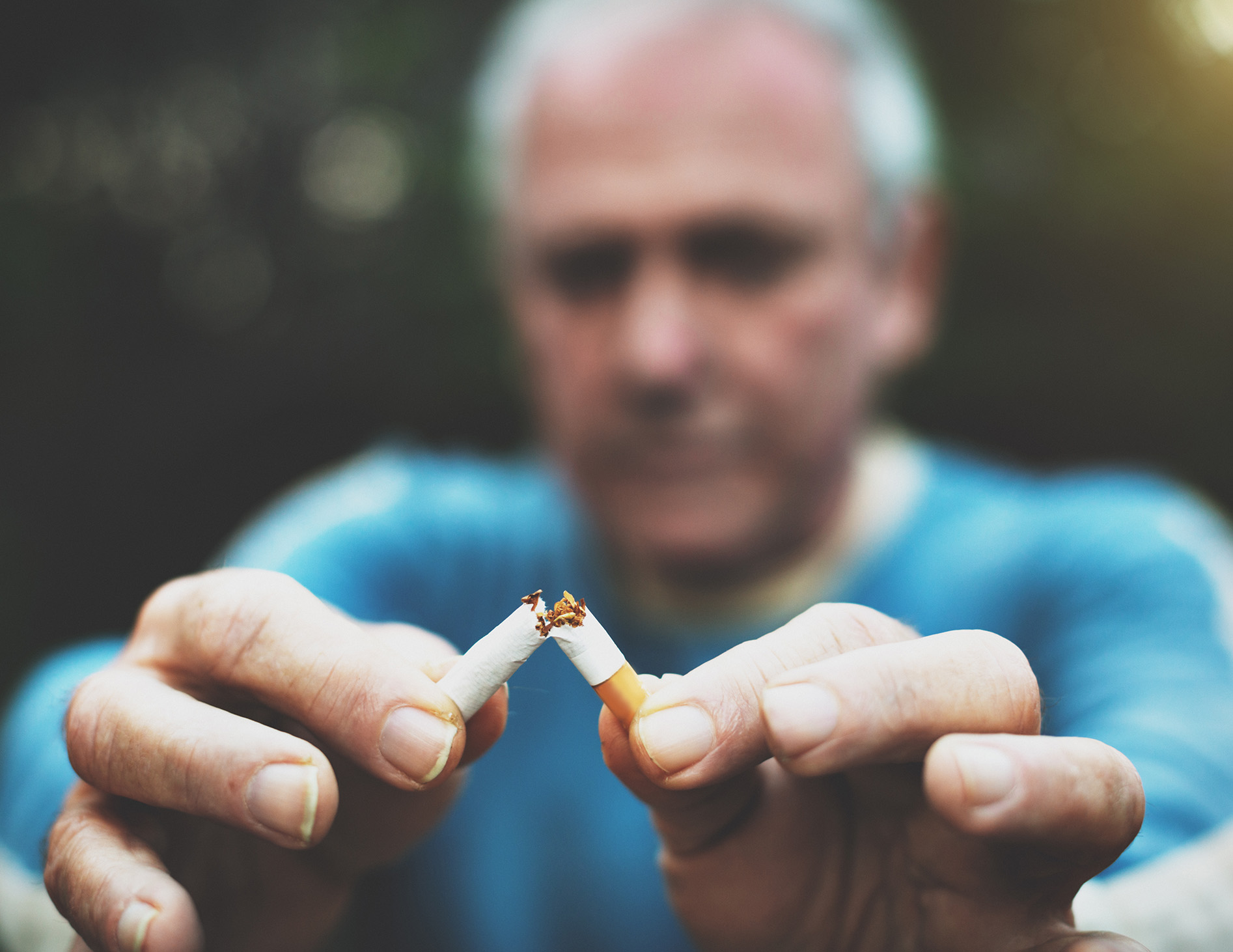For 81-year-old artist Bonnie Flanagan, an overall assessment of her health, which included a self...
Read More
You may already know that smoking puts you at higher risk for developing cancer including but certainly not limited to lung cancer. All told, it’s estimated that cigarette smoking causes nearly 32 percent of all cancer deaths in the U.S., according to the American Cancer Society.

But just because you have been diagnosed with cancer doesn’t mean that there’s no benefit to be had from quitting smoking. A lot of people may think “the damage is already done, so why not continue smoking?” The truth is it’s never too late to get the benefits of living smoke-free. Quitting smoking is one of the best things you can do following a cancer diagnosis to benefit your treatment.
A cancer diagnosis doesn’t mean you’re immune to developing other diseases or even other cancers. In fact, surviving one type of cancer puts you at a higher risk of developing another, especially if you smoke. Additionally, smoking increases your risk of high blood pressure, plaque build-up in the arteries that can cause heart complications, emphysema and COPD, among others. Smokers are six times more likely to have a heart attack than non-smokers.
Quit now to be as strong as you can be before during and after cancer treatment.
As it directly relates to your cancer diagnosis, research has shown that smoking can make the side effects of cancer treatments like chemotherapy and radiation worse on your body. Even six months following treatment, smokers reported more side effects than non-smokers. Patients who quit right before their treatment reported levels of side effects similar to non-smokers. Again, it’s never too late.
If you do smoke while receiving cancer treatments, especially if your treatment involves surgery, your body may have a more difficult time recovering. Smoking negatively impacts your heart, immune system and even your body’s ability to heal from wounds. There is some evidence that suggests smoking even changes the way your body processes chemotherapy drugs, making them less effective.
Smoking can continue to put you at a higher risk for developing other types of cancer or increase the likelihood for cancer recurrence.
If you have cancer and are in the mindset that you have nothing left to lose, think again. Quitting cigarette smoking after receiving the news of your diagnosis can be beneficial to your treatment outcomes and long-term health.
The Inspira Quit Center is here for you. Whether you are trying to quit for the first time, or the tenth time, we can help you quit smoking, chewing or vaping. Certified Tobacco Treatment Specialists offer one-to-one counseling and lead classes. Nicotine replacement therapy can be provided free of charge. Our trained providers understand the science behind physical and emotional nicotine addiction and the evidence based methods to quit.
Navigating cancer can be a scary and stressful experience that smokers may feel like they need cigarettes to get through. Remember that we are here to help. The Inspira Quit Center will give you a comprehensive, individualized quit plan that takes your diagnosis into account and provides the support you need to get through cancer smoke-free.
Call 1-800-INSPIRA for more information or to make an appointment.

For 81-year-old artist Bonnie Flanagan, an overall assessment of her health, which included a self...
Read More
Uncover the hidden connections between your family's past and your future well-being as we delve...
Read More
Treating cancer requires an arsenal of tools and preventive measures. Explore the power of...
Read More
The material set forth in this site in no way seeks to diagnose or treat illness or to serve as a substitute for professional medical care. Please speak with your health care provider if you have a health concern or if you are considering adopting any exercise program or dietary guidelines. For permission to reprint any portion of this website or to be removed from a notification list, please contact us at (856) 537-6772